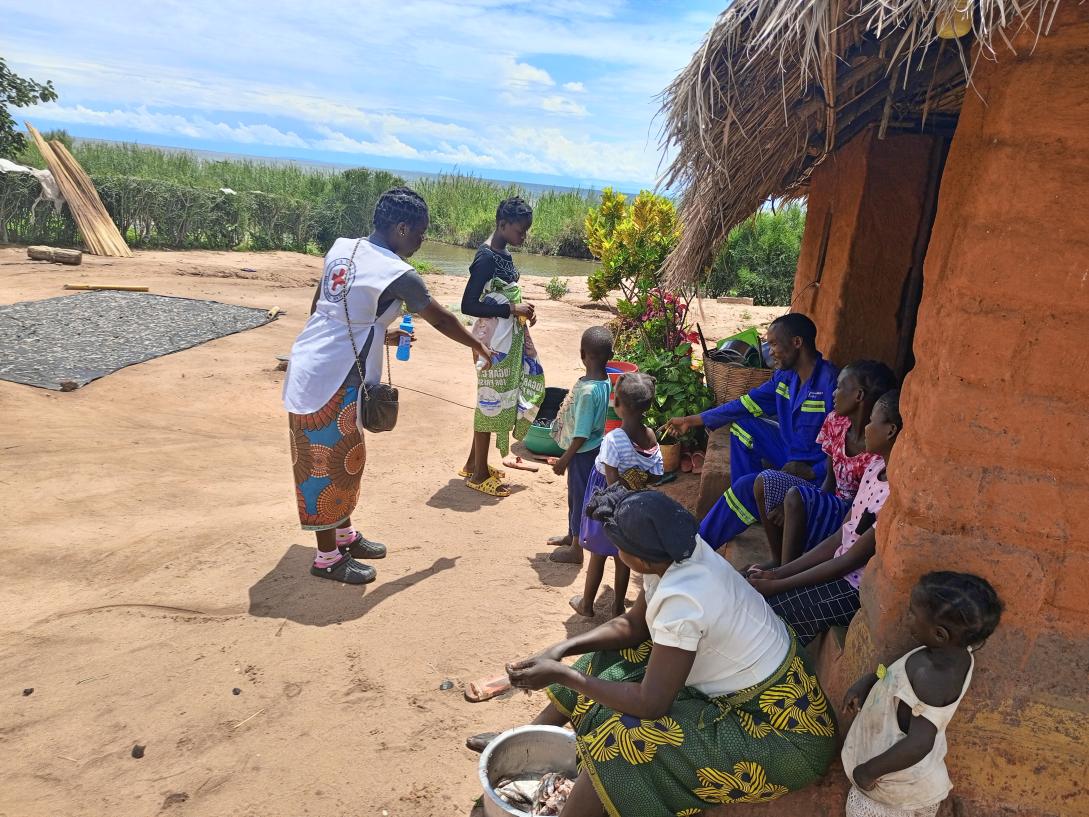The European Union allocates additional EUR 150,000 in response to Zambia Cholera Outbreak

Lusaka, Zambia – March 25, 2025 – In response to the recent cholera epidemic in Zambia, the European Union has allocated additional EUR 150,000 in emergency humanitarian aid. The support aims to assist the country in mitigating the impact of the outbreak, which poses a risk to over 1.9 million people.
The EU funding will bolster the efforts of the Zambia Red Cross Society in providing much-needed relief, including clean water, healthcare, sanitation and hygiene. The intervention will also help people mitigate transmission risk through community engagement. Since the cholera outbreak was first declared in Nakonde District in late December 2024, cases have surged to 269 as of February 20, 2025, with nine reported fatalities. The outbreak is rapidly spreading across several districts, with the town of Chililabombwe on the Copperbelt Province being the hardest hit. The outbreak is particularly affecting males, especially cross-border truck drivers and traders, due to poor sanitation, overcrowding, and reliance on unhygienic food sources.
In response to the increasing number of cases, the Government of Zambia, in collaboration with key partners including Zambia Red Cross Society (ZRCS), is implementing a multi-faceted response strategy focused on cholera prevention, effective case management and community engagement. The emergency response project will run for five months until the end of August 2025 and is expected to reach the affected people in the hardest-hit provinces of Copperbelt and Muchinga.
The funding is part of the EU’s overall contribution to the Disaster Response Emergency Fund (DREF) of the International Federation of Red Cross and Red Crescent Societies (IFRC).
With ongoing rains, the risk of further spread remains high, particularly in densely populated areas. If not contained, the outbreak could lead to increased mortality, overwhelmed health facilities, and a broader public health crisis, especially given the high mobility of populations across Zambia’s borders with Tanzania and the Democratic Republic of the Congo.
Background
The European Union together with its Member States is the world's leading donor of humanitarian aid. Relief assistance is an expression of European solidarity towards people in need around the world. It aims to save lives, prevent and alleviate human suffering, and safeguard the integrity and human dignity of populations affected by natural disasters and human-made crises. Through its European Civil Protection and Humanitarian Aid Operations department, the European Union helps millions of victims of conflicts and disasters every year. Headquartered in Brussels and with a global network of field offices, the EU assists to the most vulnerable people, based on humanitarian needs.
The European Commission has signed a EUR 14.5 million humanitarian contribution agreement with the International Federation of Red Cross and Red Crescent Societies (IFRC) to support the Federation's Disaster Response Emergency Fund (DREF). Funds from the DREF are mainly allocated to “small-scale” disasters – those that do not give rise to a formal international appeal.
The Disaster Response Emergency Fund was established in 1979 and is supported by contributions from donors. Each time a National Red Cross or Red Crescent Society needs immediate financial support to respond to a disaster, it can request funds from the DREF. For small-scale disasters, the IFRC allocates grants from the Fund, which can then be replenished by the donors. The contribution agreement between the IFRC and ECHO enables the latter to replenish the DREF for agreed operations (that fit in with its humanitarian mandate) up to a total of EUR 10 million.
For further information, please contact:
Peter Biro, Regional Information Officer for the Great Lakes, East & Southern Africa, European Civil Protection and Humanitarian Aid Operations (ECHO): peter.biro@echofield.eu
Ms- Mweemba Nchimunya, Press & Information Officer, EU Delegation to Zambia &COMESA: delegation-zambia-press@eeas.europa.eu ; +260 970 007 092
